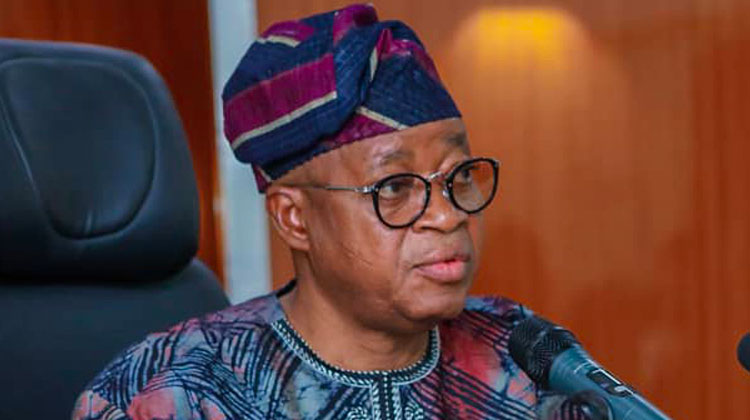By Seun Ibiyemi
Following the demand by the maritime stakeholders that the maritime sector is not fully harnessed by the government, in August 2023, President Tinubu inaugurated a dedicated Ministry of Marine and Blue Economy, signalling the pivotal steps towards harnessing Nigeria’s Maritime resources.
The move gathered commendations from industry stakeholders for his visionary outlook, positioned as a promising alternative to all dependence, Nigeria’s extensive coastline along the Atlantic Ocean offer strategic leverage for Maritime development.
While Nigeria boasts a diverse Maritime sector encompassing shipping, port, fisheries, offshore exploration, tourism and infrastructure, historical challenges persist, including infrastructure gaps, regulatory orders, security issues and environmental degradation.
The establishment of the Ministry of Marine and Blue Economy, signals a comprehensive strategy to address these challenges and unlock the sector’s potential. Under Minister Gboyega Oyetola’s leadership, collaborative efforts with industry players to revolutionise Maritime Landscape and capitalise on economic opportunities are underway. With initiatives such as port infrastructure rehabilitation, and inland dry port construction, Nigeria aims to streamline trick processes and propel sectoral growth.
In Maritime shipping, fishing and aquaculture, comprehensive mapping initiatives are underway to better understand Nigeria Maritime Ecosystem. These enforce underscore a commitment to strategy, growth and development, in alignment with global trends.
As Nigeria advances strategic initiatives in the Blue Economy, it positions itself as a regional leader in Maritime trade, fisheries, tourism and offshore energy. President Tinubu’s administration with his visionary outlook, strategic investment and sustainability commitment lays the foundation for our prosperous future in the blue economy.
Boosting maritime trade and infrastructure:
One of the key achievements of the Ministry has been the enhancement of maritime trade and infrastructure. Under the leadership of President Tinubu, significant investments have been directed towards upgrading ports and maritime facilities.
This has led to an increase in cargo handling capacity and efficiency, reducing turnaround times and improving Nigeria’s position as a hub for maritime trade in West Africa.
Also the Minister of Marine and Blue Economy said that the ministry recorded a revenue of N242 billion in the first quarter (Q1) of 2024. The revenue recovered represents a 92 percent increase from the N126 billion recorded in Q1 of 2023.
“The ministry achieved a ramp up of revenue to the government in the last year and is poised to do more. A comparison of quarter 1 2023 against quarter 1 2024 revenue performance across the agencies reveals a 92 percent increase,” the minister said.
“The increase in revenue performance has largely been due to a 10 percent increase in the number of vessels calling our ports due to strategic investments in port infrastructure in the last one-year, mooring boats, patrol vessels, and dredging of the port’s channels.
“On improving the sector’s revenue throughout the year, the ministry commenced the rollout of some initiatives such as the commissioning of revenue enhancement studies focused on the ministry, its departments, and agencies.
“The objective is to identify and block leakages while identifying recommendations to expand current revenue sources.
“Automation of revenue collection processes to eliminate bottlenecks and enhance transparency and accountability; Deploying revenue assurance technologies to ensure accurate and complete billings in line with established contracts and services rendered.
“Ensuring the efficient utilisation of existing assets through concessions to the private sector and public-private partnerships as required.”
The ministry has carried out campaigns targeting both domestic and international investors for investments in the marine and blue economy sub-sectors.
Promoting sustainable fisheries and aquaculture:
The Ministry has also focused on promoting sustainable fisheries and aquaculture, recognising the sector’s potential to boost food security and create jobs.
By implementing policies that support sustainable fishing practices and investing in modern aquaculture techniques, the Ministry has helped increase fish production and reduce the country’s dependence on fish imports.
This has not only provided livelihoods for thousands of Nigerians but also contributed to the country’s GDP.
Advancing marine tourism:
Marine tourism has received a significant boost through the efforts of the Ministry. By developing coastal areas and promoting Nigeria’s rich marine biodiversity, the Ministry has attracted both local and international tourists.
This influx has stimulated economic activities in coastal regions, leading to the growth of small businesses and increased revenue for the government.
Environmental protection and Blue Economy initiatives:
Environmental protection has been a cornerstone of the Ministry’s strategy. Initiatives aimed at preserving marine ecosystems and combating illegal fishing have been vigorously pursued.
The Ministry’s Blue Economy initiatives focus on sustainable use of ocean resources for economic growth, improved livelihoods, and jobs while preserving the health of ocean ecosystems.
Capacity building and technological innovation:
Investing in capacity building and technological innovation has been another major area of focus. The Ministry has partnered with educational institutions and international organisations to train a new generation of maritime professionals.
Additionally, the adoption of cutting-edge technologies in navigation, surveillance, and resource management has enhanced operational efficiency and safety in Nigeria’s waters.
Impact on economic diversification:
The contributions of the Ministry of Marine and Blue Economy have been instrumental in Nigeria’s broader economic diversification agenda. By tapping into the marine and coastal resources, the Ministry has opened up new revenue streams and reduced the economy’s over-reliance on oil.
This diversification is critical for building a resilient economy capable of withstanding global economic shocks.
Challenges and future prospects:
Despite the significant achievements, the Ministry faces challenges such as funding constraints, infrastructural deficits, and the need for greater enforcement of regulations.
However, with ongoing reforms and increased private sector participation, the future prospects remain promising.
The Ministry of Marine and Blue Economy has made substantial contributions to Nigeria’s economy in the first year of President Tinubu’s administration.
Through strategic investments, sustainable practices, and innovative initiatives, the Ministry is laying the groundwork for a vibrant and resilient blue economy that will support Nigeria’s growth for years to come.

